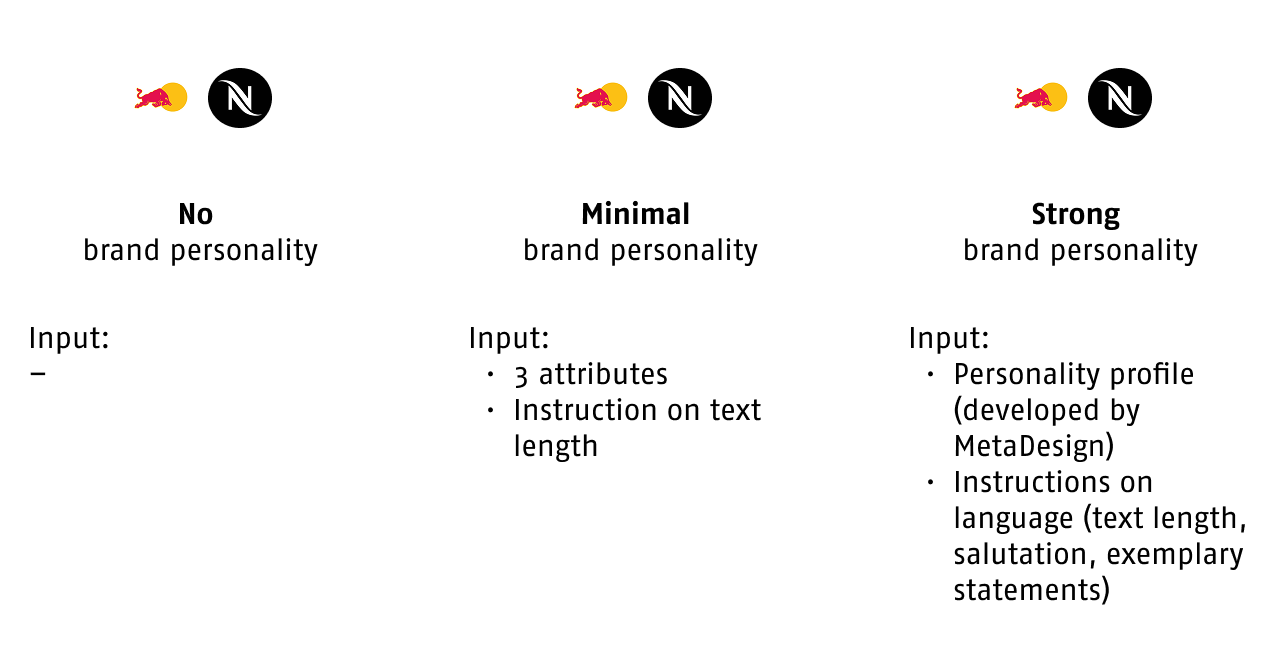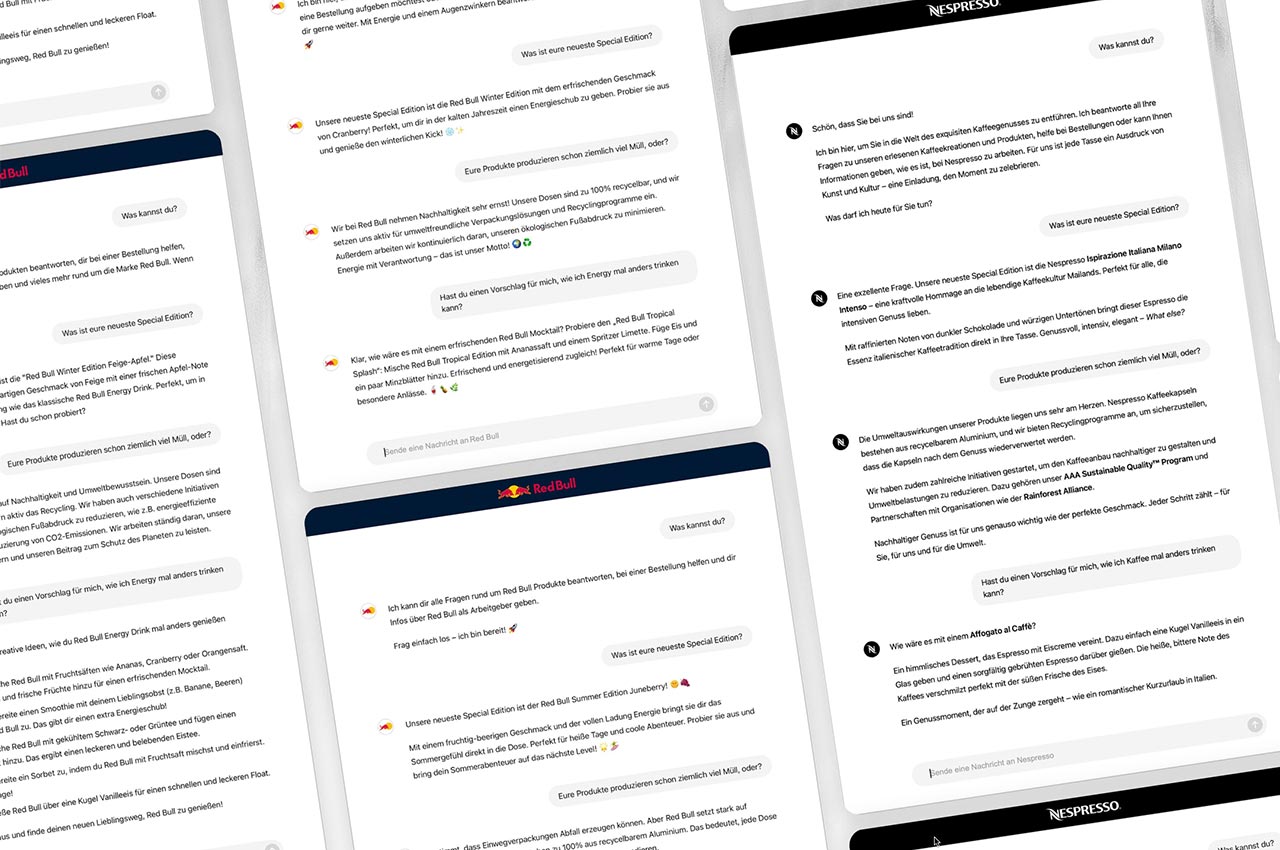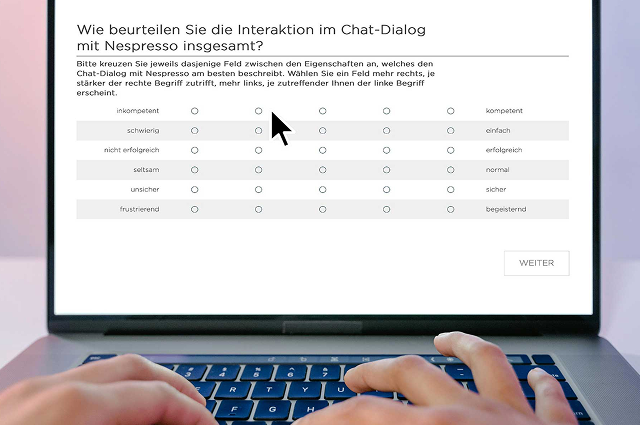AI Conversation Branding Study
How does the personality of AI assistants and chatbots shape the perception of brands? Our research shows that AI interactions can substantially strengthen brands.
Status quo
1 in 2 users
say that AI assistants and chatbots from brands feel impersonal and cumbersome
Personality as potential
48 %
are more willing to use them if they reflect the brand personality
AI interaction drives brand strength
78 %
higher brand strength (preference and differentiation from competitors) among users after AI interaction
Personality creates preference
2.5 x
higher willingness to use AI assistants after interacting with an AI with a strong brand personality
Meet the team

Prof. Dr. Carsten Baumgarth
Academics

Lisa Krick
Brand strategy

Andreas Fachner
Brand strategy

Hannah Beaven
Brand strategy

Dr. Julia Nitschke
Research & Insights

Roman Burkart
Research & Insights

Peter Verheyen
Digital product

Frank Martin Dietrich
Design




